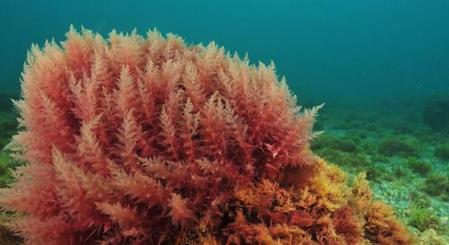
India Can Tap Algae For Rare Earth Extraction, Says Expert
In a recent assessment, Laladhas noted that India, despite having significant REE reserves in beach sands and deposits in the Northeast, faces challenges in extraction due to the complex nature of the ores.
REEs, critical for electronics, renewable energy, and defence applications, are currently sourced globally from geopolitically sensitive and environmentally intensive mining operations.
Algal mining, he explained, is a novel and environmentally conscious approach that sidesteps many of the issues associated with traditional methods.
The technology harnesses the natural ability of ocean macroalgae, or seaweeds, to hyper-accumulate dissolved metals from seawater.
Research has shown that certain species can concentrate these elements within their tissues at levels up to a million times higher than the surrounding water.
This process, referred to as photosynthetic mineral sourcing, uses sunlight and cultivated seaweed to harvest critical minerals directly from seawater.
Unlike conventional mining, it generates no toxic tailings or water contamination and can even improve ocean health by sequestering carbon, nitrogen, and phosphorus.
"It is restorative rather than destructive," Laladhas said, while cautioning that the technology remains in its nascent stage with no commercial-scale operations yet in existence.
The broader concept of an algal biorefinery goes beyond mineral recovery. Alongside REEs, it can yield biofuels, biopolymers, and fertilisers, making it a multi-product, value-generating system aligned with the circular economy. India, he pointed out, has an advantage due to its vast coastal macroalgae resources and proven expertise in phycoremediation - the use of algae to clean industrial effluents.
Instead of pursuing open-ocean projects, the country could repurpose its industrial-scale systems to recover REEs from waste streams of mineral processing plants.
To realise this potential, Laladhas suggested a three-phase strategy: a targeted Research and Development programme to identify indigenous algae species best suited for REE absorption; pilot projects through public-private partnerships; and eventual scaling into integrated biorefineries.
With the right policy push and investment, he argued, India could position itself as a global leader in sustainable REE supply chains, reducing dependence on environmentally destructive mining and advancing its green economy goals.

Legal Disclaimer:
MENAFN provides the
information “as is” without warranty of any kind. We do not accept
any responsibility or liability for the accuracy, content, images,
videos, licenses, completeness, legality, or reliability of the information
contained in this article. If you have any complaints or copyright
issues related to this article, kindly contact the provider above.


















Comments
No comment